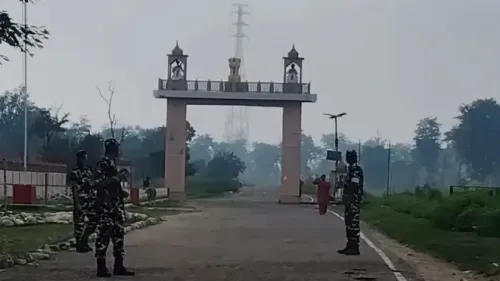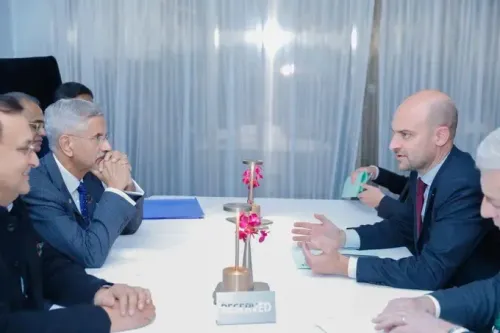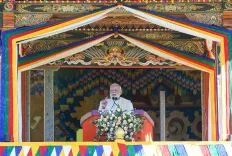What Does the Sharmista Arrest Case Reveal About Hate Speech vs Patriotism?

Synopsis
Key Takeaways
- Kolkata Police emphasize the legal basis of Sharmista's arrest.
- A clear distinction is made between patriotism and hate speech.
- Influencer Sharmista's case highlights societal tensions.
- Public figures have voiced support and criticism regarding the arrest.
- Legal frameworks like Bhartiya Nyaya Sanhita are invoked to address hate speech.
New Delhi, June 1 (NationPress) As the public expresses increasing empathy for the detained influencer Sharmista Panoli, the Kolkata Police took to social media on Sunday to assert their patriotic stance while addressing the 'misleading narrative' surrounding their enforcement actions and her controversial social media posts.
In a statement shared on the platform X, the Kolkata Police defended their decision to arrest the 22-year-old law student, asserting that they acted in accordance with established legal protocols.
“Hate speech and derogatory language cannot be misinterpreted as freedom of speech as protected under Article 19(1)(a) of the Constitution,” the police articulated.
“The individual was not taken into custody for expressing patriotism or personal beliefs; legal measures were enacted due to the dissemination of inflammatory content that incites animosity among communities,” they stated.
“Certain social media profiles are propagating false claims that the Kolkata Police unlawfully detained a law student for opposing Pakistan. This portrayal is both mischievous and deceptive,” the statement emphasized.
The police took care to clarify the distinction between demonstrating national pride and engaging in hate speech directed at any religious leader, community, or demographic.
“Every citizen and organization, including the Kolkata Police, stands firmly for expressing national pride and patriotism,” they noted.
“At a time when the nation is united and our brave citizens are valiantly defending our borders, sharing content on social media that demeans any group of Indian citizens is an abhorrent act. Such behavior only serves to aid our adversaries,” the Kolkata Police remarked.
The statement explained that the law student from Gurugram was arrested based on allegations that she released a video insulting the religious sentiments of a particular community, thereby promoting discord and animosity.
The police reiterated that hate speech targeting any religious figure or community in India, which has the potential to incite disharmony, is a punishable offense under the newly enacted Bhartiya Nyaya Sanhita.
The clarification from the Kolkata Police coincided with remarks from celebrities like Bollywood actress Kangna Ranaut, who deemed the arrest over a now-deleted social media post as ‘unjustified’ and likened it to a North Korean-style dictatorship.
Criticizing the Trinamool government in West Bengal, the National Award-winning actress and BJP MP from Mandi in Himachal Pradesh stated: “I urge the West Bengal government not to turn the state into another North Korea.”
Actor and politician Pawan Kalyan, Deputy Chief Minister of Andhra Pradesh, also expressed support for Sharmista and urged the police to ensure justice.
Sharmista was apprehended on Saturday in Gurugram by the Kolkata Police for posting videos with communal remarks during Operation Sindoor. She is currently in judicial custody for 14 days.








